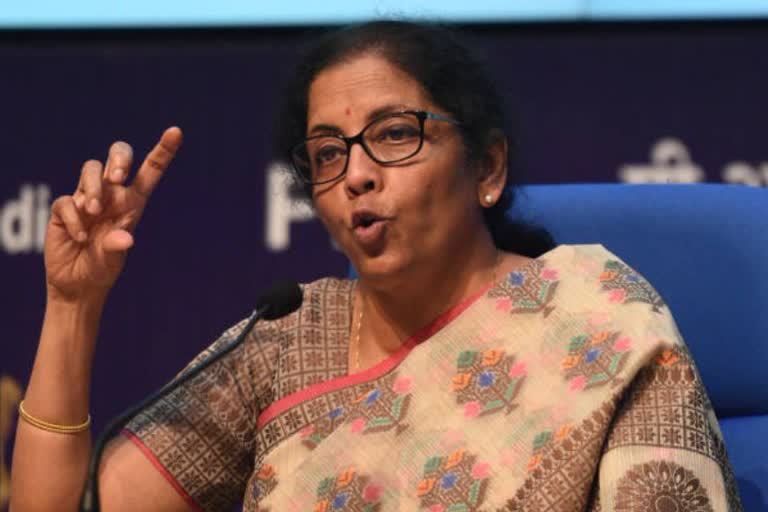New Delhi: The Government on Monday said there is no proposal to bring out a White Paper on the economy and that a voluntary and contributory pension scheme for Small and Marginal Farmers across the country has already been approved, which will boost income security in the rural sector.
A similar pension scheme has also been approved for small shopkeepers and retailers and self-employed persons. The positive impact of structural reforms on growth creates additional employment on a sustainable basis both in the organized and the unorganized sector, Finance Minister has said.
Replying on written questions in Lok Sabha, Finance Minister Nirmala Sitharaman said several structural reforms have been initiated in recent years. Introduction of Insolvency and Bankruptcy Code (IBC) is a significant step towards cleaning and strengthening the financial system of the country.
Read more:India's urban unemployment rate drops to 9.3% in Jan-Mar 2019
She also said demonetization was a necessary step that had to be undertaken to weed out black money from the economy, widen the tax base and increase formalization for inclusive growth. The growth of a country depends on a number of factors viz, structural, external, fiscal & monetary factors. No direct and segregated data is available to measure the effect of demonetisation.
According to the minister's reply, implementation of Goods and Services Tax stands out as the most important measure for improving ease of doing business in the country. Make-in-India programme is a major initiative towards increasing the indigenous capacity of the country to produce world class goods and services. Continuous liberalization has resulted in record and unprecedented inflows of foreign direct investment into the country. And all along Government has kept inflation low, fiscal spending disciplined and current account deficit manageable to ensure macroeconomic stability so necessary to sustaining a healthy investment climate in the country.
More recently Government has cut corporate tax rate from 30 per cent to 22 per cent to boost investment activity in the country. In particular, the corporate tax rate has been cut to 15 per cent for new domestic manufacturing companies which is amongst the lowest in the world. This complements a cut in the repo rate by 135 basis points during 2019 by the Reserve Bank of India. Government has also extended PM Kisan scheme to include all farmers, which will boost rural consumption.



